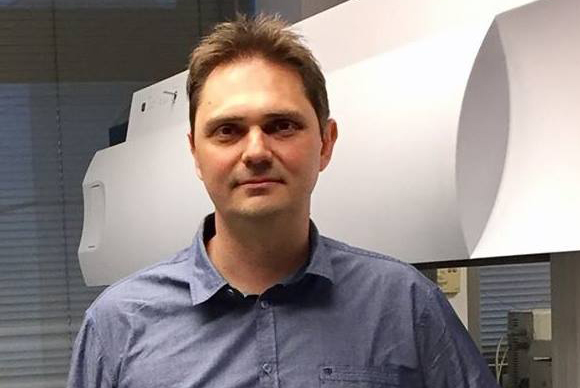One of the biggest challenges for any start-up is getting ideas off the ground — but American tech company Nvidia is looking to change that with its Inception Program.
The virtual accelerator project, which provides a combination of market support, expertise and access to a range of technologies, is “one of the best things that has happened to DeepMed.io”, according to the company’s managing director Dr Konstantinos Vougas.
Dr Vougas, who founded the UK medtech start-up in 2017, believes many of its innovations and achievements with artificial intelligence over the past two years would not have been possible without Nvidia’s support.
DeepMed.io uses AI to increase the accuracy and speed of diagnoses made through histopathology — examining human tissue with a microscope to study disease — and attempts to deliver personalised care solutions for patients.
Deep learning can be deployed to streamline the process of histopathology, by automatically analysing tissue slides under a microscope before they are validated by a pathologist.
Dr Vougas said: “Nvidia’s Inception Program has been extremely helpful. The access we have to the in-house training Nvidia is providing makes our engineers better at their jobs.
“Networking, communication, education, and funding — these are all crucial for the survival and growth of a start-up.”
How does Nvidia help AI start-ups through its Inception Program?
Nvidia primarily designs graphics processing units (GPUs) for video gaming, but is now also supporting AI start-ups attempting to innovate within a range of industries — one of which is healthcare.
Nvidia provides this support no matter how much funding the company has previously received, or what stage its product is at, and breaks its Inception Program down into three key areas: Market support, expertise and technology.
Through market support, Nvidia provides networking opportunities, brokering meetings and connecting its companies to fellow start-ups and industry leaders alike, and providing access to a number of exclusive events and marketing channels.
As well as in-house training and assistance from its own experts, Nvidia provides free access to online courses in AI, as well as access to a forum for technical enquiries and community engagement called DevTalk.
The Inception Program also means member start-ups qualify for discounts on a number of Nvidia’s latest technologies, receive guidance on which of these are best suited to their needs, and are made aware of all the latest pieces of tech on the market.
Nvidia health and life sciences business development lead in Europe, the Middle East and Africa Craig Rhodes said the programme is one of the key areas the company is investing in right now.
He added: “A lot of people are coming out of university with really good ideas and developing these ideas is actually a very achievable goal.
“Through the Inception Program we are getting start-up ideas off the ground, and helping them see what the art of the possible is.
“We really want to support them from a technology point of view and optimise what they are doing.”
Nvidia sees the Inception Program as a “community of leading AI start-ups”, which now has more than 5,000 members.
How DeepMed.io became one of the world’s top 10 companies in its field following Nvidia’s support
In September 2019, DeepMed.io participated in the Camelyon17 grand challenge in the Netherlands for the first time.
The goal of the challenge was to assess algorithms for state-of-the-art automated detection and classification of breast cancer metastases — secondary malignant growths developing away from the primary site of cancer — using artificial intelligence.
The performance of DeepMed.io’s algorithm was assessed, and it placed 14th out of 87 submissions.

However, because a number of medtech teams inside the top 15 made multiple submissions, DeepMed.io actually ranked inside the top 10 teams in the world for detecting breast cancer using AI.
In a post on its website, DeepMed.io said it is also confident of improving on this performance with its two remaining submissions to Camelyon17 challenge.
The start-up also specifically thanked the Nvidia Inception Program in the post, who sponsored DeepMed.io’s submission, while Dr Vougas said: “We would not have been able to develop this without the technology from Nvidia.
He added: “The Inception Program means we have the chance to demonstrate that we can provide machines that actually work.”




